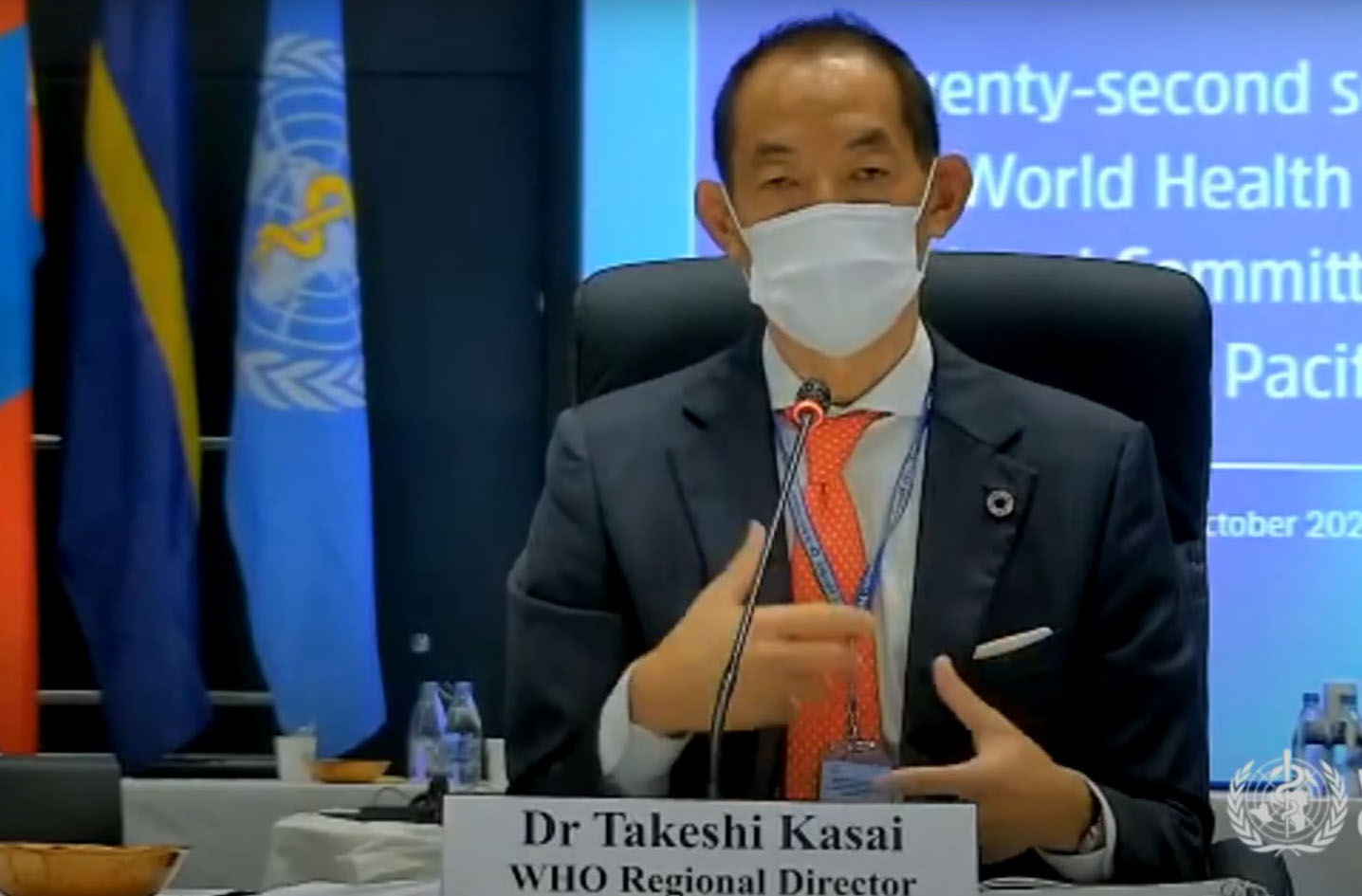INTERNATIONAL: The World Health Organisation in the Western Pacific Region has once again lauded Cambodia for its vaccination campaign. The statement came as the WHO began its five-day regional meeting, largely hosted virtually by Japan. WHO Regional Director, Dr. Takeshi Kasai, has again recalled his conversation with a 108-year-old Cambodian woman who got vaccinated against Covid-19. In his opening remarks on Monday, he says while it has been another unprecedented 12 months, people like Cambodia’s centenarian make him optimistic, even though the pandemic continues to devastate the world.
Cambodia is once again taking pride of place in the world’s vaccination campaign. 108-year-old, Chrolek Bli, a Cambodian woman, has inspired many. One of them is WHO Western Pacific regional Director Dr. Takeshi Kasai. He says has thought often about her, and the extraordinary feat of science, logistics and solidarity, which enabled her to be vaccinated against the virus.
Kasai has added that it is incredible to think that Chrolek was born before the Spanish flu pandemic in 1918 and was struck by the fact that Chrolek’s main motivation was concern for the health and protection of the people around her. He has encouraged people to learn the lesson. He says the virus will not disappear, and therefore, we must shift our focus to what it means for the world to “live with it”.
Dr. Kasai says, “We are now working with the countries across the Western Pacific to plan for endemic Covid-19 with the focus on protecting the vulnerable and avoiding the red line where health services get overwhelmed and this requires actions in five areas. One, effective use of vaccines. Two, continue application of public and social measures. And three, expanding health system capacity including home and intermediate care facilities. Fourth, early detection targeted response to flare-ups and fifth, a risk-based approach to border controls.”
He has also said that there is a need to keep improving each country’s capacity in surveillance, communications, and contact tracing and monitoring. And of course, continue strengthening health systems with long-term investments geared towards advancing universal health coverage.






















